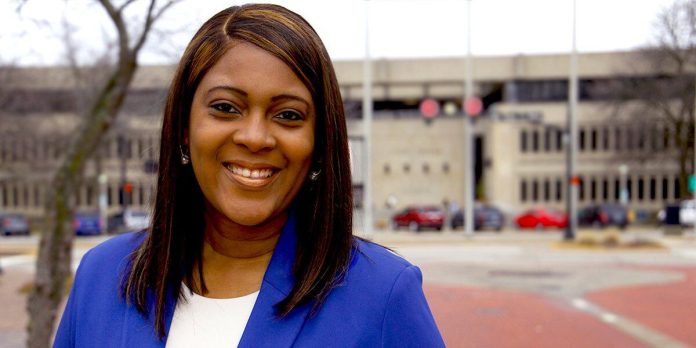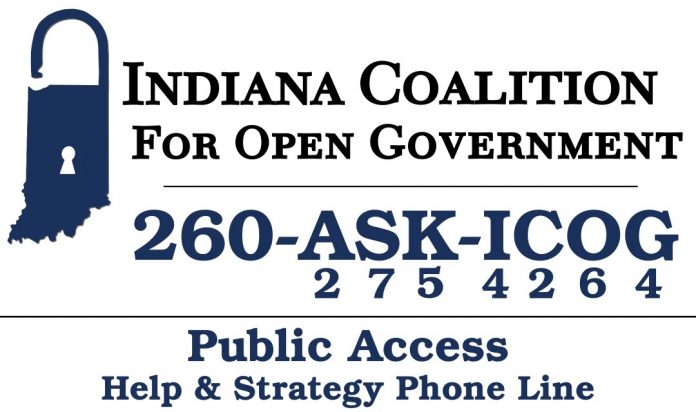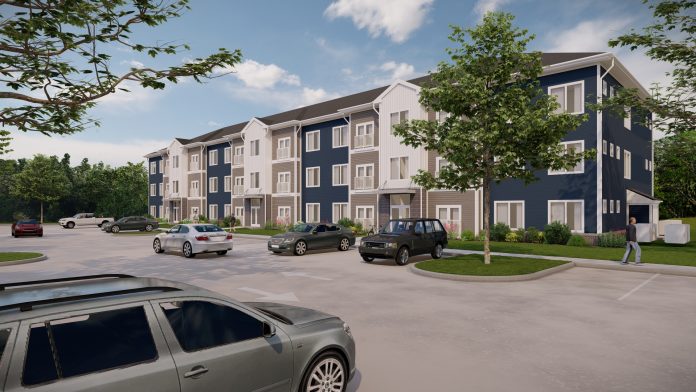|
INDIANAPOLIS – The state’s first West Nile virus (WNV) disease case for the 2025 season has been reported in a Vanderburgh County resident. No additional information about the case will be released to protect patient privacy.
West Nile virus activity has also been detected in mosquitoes throughout the state (56 samples taken from 15 counties). Visit the Indiana Mosquito-Borne Activity Dashboard to learn more. Indiana reported 11 human WNV cases in 2024. The Indiana Department of Health expects to see additional West Nile virus cases as the mosquito season progresses. Taking precautions against mosquito bites can reduce the risk of disease caused by mosquito-borne viruses such as West Nile virus, Eastern equine encephalitis (triple-E) virus, and La Crosse virus. “We have already had mosquitoes test positive for WNV this season,” said State Health Commissioner Lindsay Weaver, M.D., FACEP. “With large amounts of recent rainfall and projected high temperatures continuing this week, Hoosiers in all parts of the state should take steps to remove breeding sites around their homes.”
Steps to prevent mosquito-borne diseases include:
Most people infected with West Nile virus have no symptoms or only mild flu-like symptoms which can include fever, headache, body aches, joint pains, vomiting, diarrhea, or a rash. A small number will develop a more severe form of the disease affecting the nervous system, including inflammation in the brain and spinal cord, muscle paralysis, or even death.
People older than 60 years and those with weakened immune systems are at higher risk of severe West Nile virus disease. People who think they may have West Nile virus disease should see their healthcare providers. |
FIRST WEST NILE VIRUS CASE OF 2025 REPORTED IN VANDERBURGH COUNTY RESIDENT
Mayor Terry Opens New Round of Forward Together Grants to Support Local Nonprofits
Evansville Mayor Stephanie Terry announced today that her administration is now accepting applications for a new round of Forward Together grants.
Mayor Terry created the initiative in 2024 to strengthen local nonprofit efforts aligned with the City’s priorities of neighborhood revitalization, public safety, and poverty reduction. This year, eligible nonprofit organizations may apply for up to $35,000 in funding to support programs in one or more of the following categories:
- Home Weatherization
- Food Access
- Services for people experiencing homelessness, and
- Literacy.
The application deadline is Friday, September 19, at 5:00 p.m., and application materials are now available on the City’s website at www.evansvillegov.org/forwardtogether. Completed applications should be submitted via email to Ariah Leary, Director of Community Affairs and Special Projects, at aleary@evansville.in.gov.
“In communities across Evansville, nonprofit organizations are on the front lines, offering hope, opportunity, and critical services to those who need them most,” Mayor Terry said. “The Forward Together grant program is about amplifying that work. By investing in initiatives like literacy and food access, and by supporting organizations doing essential work around homelessness and home weatherization, we’re taking real, tangible steps toward building a more equitable and thriving city.”
The Forward Together program is funded by interest earned from American Rescue Plan Act (ARPA) funds and reflects the City’s broader commitment to empowering grassroots solutions to systemic challenges.
All grant proposals will be reviewed by a volunteer committee before receiving final approval from the Mayor’s Office.
Evansville Mayor Stephanie Terry announced today that her administration is now accepting applications for a new round of Forward Together grants.
Mayor Terry created the initiative in 2024 to strengthen local nonprofit efforts aligned with the City’s priorities of neighborhood revitalization, public safety, and poverty reduction. This year, eligible nonprofit organizations may apply for up to $35,000 in funding to support programs in one or more of the following categories:
- Home Weatherization
- Food Access
- Services for people experiencing homelessness, and
- Literacy.
The application deadline is Friday, September 19, at 5:00 p.m., and application materials are now available on the City’s website at www.evansvillegov.org/forwardtogether. Completed applications should be submitted via email to Ariah Leary, Director of Community Affairs and Special Projects, at aleary@evansville.in.gov.
“In communities across Evansville, nonprofit organizations are on the front lines, offering hope, opportunity, and critical services to those who need them most,” Mayor Terry said. “The Forward Together grant program is about amplifying that work. By investing in initiatives like literacy and food access, and by supporting organizations doing essential work around homelessness and home weatherization, we’re taking real, tangible steps toward building a more equitable and thriving city.”
The Forward Together program is funded by interest earned from American Rescue Plan Act (ARPA) funds and reflects the City’s broader commitment to empowering grassroots solutions to systemic challenges.
All grant proposals will be reviewed by a volunteer committee before receiving final approval from the Mayor’s Office.
GOVERNMENT & POLITICS Open government group launching public access hotline, hopes to ease PAC workload
A new hotline aims to help Hoosiers with public meeting and records questions — and buy recently installed Public Access Counselor Jennifer Ruby time to catch up.
The pilot project is operated by the Indiana Coalition for Open Government. The volunteer-staffed hotline will formally launch Aug. 1 but is already open for calls, President Zachary Baiel said Monday.
The coalition decided to take action as complaints of non-responsiveness and long wait times pile up among its own members and in the news.
“We convened a quick working group with ICOG and just said, ‘Hey, … it’s not hard to set up a phone number and do that sort of thing. Why don’t we try this?’” Baiel recounted.
“This gives us another way to connect with Hoosiers, which is already what we enjoy doing,” he added. “This might also alleviate the pressure on the PAC office.”
Removing ‘excuses’
The coalition was founded in 1995, with an informal luncheon organized by the Society of Professional Journalists’ Indiana chapter, according to the website.
It offers informational talks, webinars and other online resources, but focuses on aiding Hoosiers — answering questions, finding the right agency to contact, wording requests better, and so on. There’s no legal advice involved.
Baiel called the coalition “another voice, another perspective” to the governor-appointed PAC. It still directs people to the office for informal and formal advisory opinions, however.
Former PAC Luke Britt, who ran the office for about 12 years under previous Govs. Mike Pence and Eric Holcomb, announced plans to resign mid-February, WFYI reported. In late March, new Gov. Mike Braun named Indianapolis attorney Jennifer Ruby as the successor.
Ruby faces a daunting workload — and disgruntled Hoosiers.
Others are stepping in.
“We gave her a heads up, like, ‘Hey, don’t take offense to this or anything,’” Baiel said. “But, you know, she’s not blind, and I’ve seen plenty of the press around her … People aren’t getting responses. So we’re going to fill in the void.”
There’s an accountability angle, too.
“If there’s anything we can do to help catch some of those people — that way, that doesn’t then become an excuse in terms of responding back to the public. Like, ‘Oh, we did so many of these really low-level calls a day, and that just eats up four hours, and we have no personnel, and we can’t do those,’” Baiel said. “You know, I like removing excuses, so this is another excuse that then can’t be used.”
He and two other members of the coalition’s board have committed to the hotline, with the goal of answering calls live or responding to voicemails day-of.
They’re using OpenPhone, a Voice over Internet Protocol provider, so that incoming calls will ring on their desktops or smartphone apps.
The project is billed as a 90-day pilot, but Baiel said he intends to keep it going. It will depend on costs, interest from board members and uptake from the public.
Epstein is Not About Epstein
Freedom, Indiana – On Saturday, July 26th at noon, we will assemble at the Soldiers and Sailors Monument in downtown Indianapolis, to demand that our government stop lying, and stop keeping secrets about its corruption, blackmail, and a widespread ruling class culture of theft, human trafficking, sexual exploitation, and rape.
It’s easy to see that promises to audit the Federal Reserve and Ft. Knox, major news stories like the Las Vegas mass shooting, catastrophes like 9/11 and the assassination of JFK and Martin Luther King Jr. appear, disappear, and feed conspiracy theories. It’s also easy to see that our government, while building a digital panopticon to monitor and control us, has itself become opaque and out of control.
From past revelations, we’ve already learned that our government has performed radiation and medical experiments on soldiers and citizens, has even started wars on lies, leading to uncountable needless deaths. We’ve been warned from our nation’s founders through Eisenhower and JFK about nefarious actors building a shadow government in violation of constitutional and basic moral laws. We did not heed their warnings.
While the proof is withheld from us, there is plenty of evidence to suggest that our today government is not merely corrupt, but also under the control of international actors with sick and murderous proclivities.
We’ve never had so much evidence of deceit from the self-contradictory mouths of our politicians. We’ve never been closer to socioeconomic collapse, or WWIII. We’ve never had a better reason to protest, and demand answers.
We need revelations much more extensive and complete than the too-limited and quickly aborted Church Committee findings of 1975. We demand our politicians open up and finally tell us the truth about who and what our government is, how it actually operates. We need to fix this mess before it collapses around us in the greatest tragedy of all – the end of the USA’s experiment with free people and a government on a leash of written law.
Liberty or Bust!
Andy Horning
HOT JOBS
|
|||||||||||||||||||||||||||||||||||||||||||||||||||||||||||||||||||||||||||||||||||||||
|
|
EPD DAILY ACTIVITY REPORT
FOOTNOTE: EPD DAILY ACTIVITY REPORT information was provided by the EPD and posted by the City-County-County Observer without opinion, bias, or editing.
Gov. Mike Braun Breaks Ground on Oak Street Village Housing Development
READI 2.0 project progresses in southwest Indiana.
LOOGOOTEE, Ind. – Indiana Governor Mike Braun joined Loogootee Mayor Brian Ader and other community officials to break ground on Oak Street Village on Friday.
The development, funded by a $600,000 Regional Acceleration and Development Initiative (READI) 2.0 allocation and an $11.3 million Indiana Housing and Community Development Authority (IHCDA) credit, is designed to provide accessible and affordable housing options to Hoosiers.
“The best economic development strategy is one that works closely with the local region, and I am excited that the Oak Street Village project is the product of that collaboration,” said Gov. Braun. “It was an honor to help break ground with the community leaders and partners in Loogootee, and I’m grateful for the partnership of local leaders alongside the state as we create more opportunity across Indiana.”
The Oak Street Village development will bring to life 50 one-, two- and three-bedroom units for families earning 30%, 50% and 60% AMI in Loogootee (Martin County).
The development will also feature a licensed childcare facility, pickle ball courts, and a public playground.
Construction began Friday, and the project is expected to be complete by November 2026.
Medicaid cuts all Hoosiers will feel
by , SCOTT TITTLE, Indiana Capital Chronicle
“Why is health care so expensive?” is the question I’ve been asked more than any other since joining the Indiana Hospital Association last year. It’s a critically important one, and while my answer usually begins with, “It’s complicated,” one thing is now certain:
Reducing Indiana’s health care costs became even more complicated as a result of the One Big Beautiful Bill Act (OBBBA), which is projected to cut nearly $13 billion from Indiana hospitals over the next decade.
The effects of this legislation will trickle down to all Hoosier patients — not just those on Medicaid — as hospitals are forced to cost-shift these significant losses in the coming years.
Impact on Hoosier patients
It’s undeniable that many of Indiana’s hospitals are financially strained. This year alone in our state, Harrison County Hospital, a rural hospital, closed its OB unit, and Columbus Regional Hospital announced a significant reduction in services. In addition, Logansport Memorial Hospital and Parkview Health entered into a partnership to ensure Hoosiers in Cass County continue to have access to care close to home.
Under the OBBBA, 180,000 individuals in Indiana are estimated to lose their Medicaid coverage. But Hoosiers without any insurance are still going to seek treatment — and their local hospital will be the only place they can turn to, most likely in the emergency room, which is the most expensive option for care. Hospitals will be forced to make difficult decisions to cover the care for everyone who enters their doors, regardless of their ability to pay, as health care costs are only going to increase in the future.
The ensuing ripple effect will likely bring about longer wait times for patients in emergency rooms and overall reduced access to care. Communities throughout the state will see possible hospital staffing impacts, reductions to clinical and community services, and in some instances, additional consolidation or closure of health care facilities altogether.
Projected losses for Indiana and its hospitals
According to the Urban Institute and Robert Wood Johnson Foundation, the expected Medicaid reductions from the OBBBA will cost Indiana an estimated $31 billion over the next decade, the seventh-highest total dollar impact across the nation. In other words, only six states will see higher cuts than Indiana.
Of that, Indiana hospitals will lose $12.7 billion with even lower Medicaid reimbursement than they receive today, which is just 57 cents on the dollar.
Throughout the state, 67% of care provided by hospitals is paid for by Medicare or Medicaid. Imagine running a business where two-thirds of your customers are purchasing your product at a price far below your actual costs. No business can sustain such losses for long. And your local hospital is no different.
Medicare and Medicaid make up an even higher percentage of care provided in rural communities, in which 72% of patients are covered by these programs, and largely why nearly one-third of Indiana’s rural hospitals are today operating at a loss.
Rural hospitals will fare no better than their urban and suburban counterparts, even after the inclusion of the new rural hospital stabilization funding in the OBBBA to offset the future Medicaid cuts. While details of how the funds will be allotted are still unknown, we appreciate Congress enacting this measure. Unfortunately, it won’t be enough to cover expected losses, and there is no additional assistance following the end of the OBBBA’s five-year period.
As dire as the situation is for Indiana, we would be in far worse shape had state policymakers not taken decisive action this past legislative session to supplement Indiana’s low Medicaid reimbursement through a new State Directed Payment Program (SDPP), which will provide hospitals some slightly enhanced Medicaid funding. IHA very much appreciates Gov. Mike Braun and the Indiana General Assembly for recognizing the need for this critical funding to help sustain Hoosier hospitals and protect access for patients.
However, under the OBBBA, this new SDPP reimbursement that hospitals will be depending on will be short-lived as it will begin to phase down over five years beginning in 2028, and Indiana’s Medicaid reimbursement for hospitals will drop even lower in 2032 than it is today.
Despite these significant challenges, Indiana hospitals remain committed to working with federal and state officials to find the best path forward to ensure continued access to affordable health care for all Hoosiers. It will take all of us – hospitals, policy leaders, payors, employers, and consumers – to come to the table to find workable solutions. The financial stability of our entire health system and the 6.8 million Hoosier lives it serves are depending on it.











